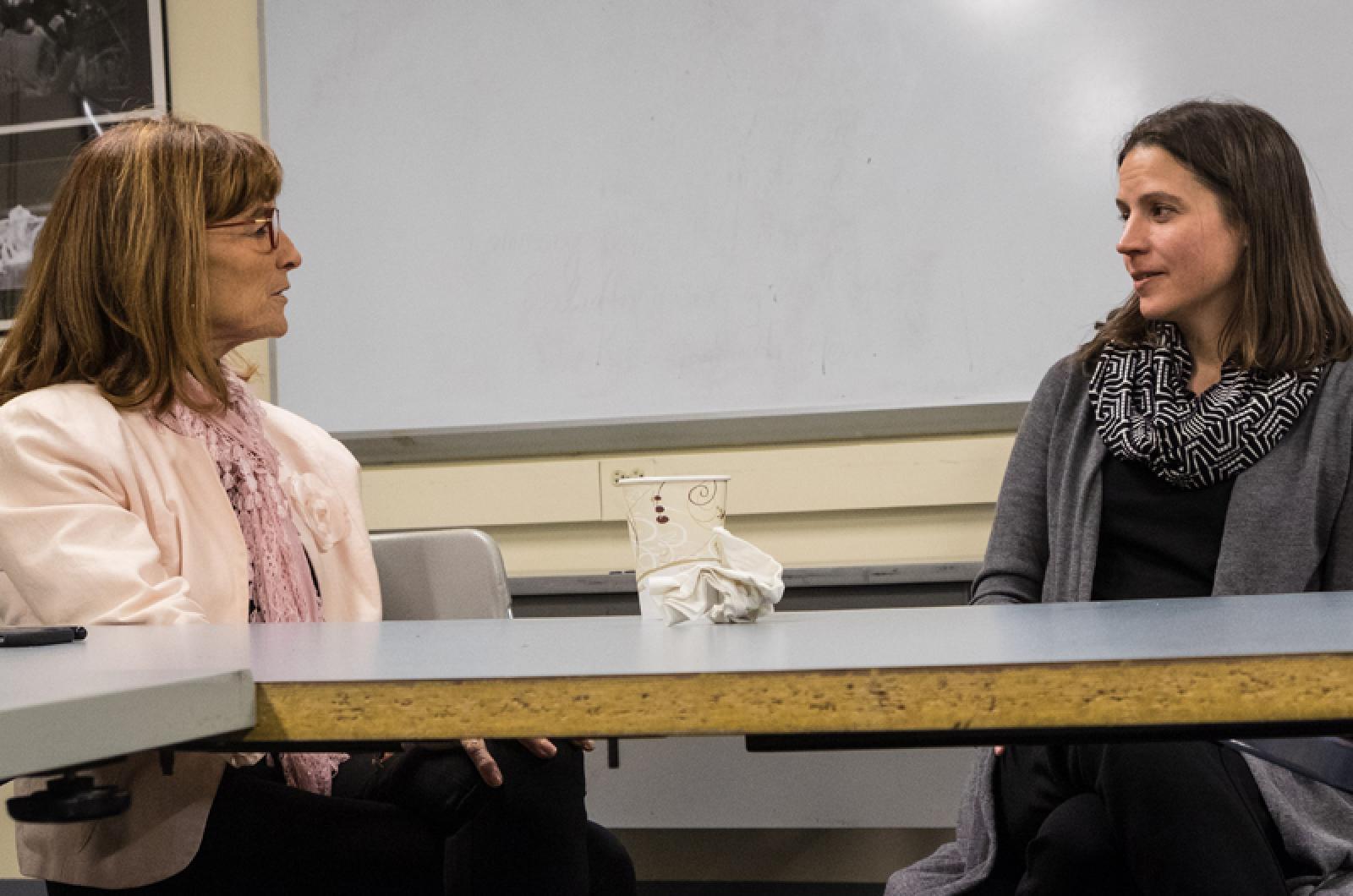Scheduling, grading and cell phone policies were all topics for discussion when the incoming principal for the Martha’s Vineyard Regional High School met with parents, faculty and staff Tuesday morning.
“I want there to be a sense of fun and progress, that people enjoy each other and look forward to coming to work, to work with kids but also to work with each other,” Sara Dingledy told the small gathering over coffee and pastries.
Ms. Dingledy (pronounced Dingle-dye) was chosen to be the new principal last month. She is currently principal of the Westchester Square Academy in New York city. She will move to the Vineyard in July to begin work, accompanied by her husband and two small children.
Chatting informally, the new principal said she believes in matching teachers with activities that they feel passionate about, whether it’s yearbook, performing arts or character education.
Questions about scheduling included the long-running topic of whether students have enough time for lunch.
Kelsey Head, Island Grown Schools high school coordinator, said students have 18 minutes to eat lunch with lunch periods scattered throughout the day from as early as 10:40 a.m., leaving many of them hungry and tired at the end of the day.
Ms. Dingledy said master scheduling can create a well functioning school and could fix the fundamental problems of the lunch program. She also suggested auxiliary solutions, like distributing snacks to the students and allowing eating in classes.
She expressed interest in setting up a scheduling committee to look into the issue, which she equated to a giant word problem.
“When you do master scheduling, you have to get what are your three values, what are the three things you are going to hold really tight, and then you prioritize those and then map out the other ones,” she said.
Anthony Peak, a high school parent, asked whether Ms. Dingledy favored a cumulative or quarterly grading system.
She replied that there should be a common grading policy that is clearly communicated to the parents and students at the beginning of the year.
“The question is do kids feel like they have more control if they get a clean slate the second quarter and they know those quarters are going to be averaged to determine a final grade, or do they feel better if they know that grade is a benchmark every 10 weeks about how they are doing toward a final grade,” she said.
Her views on cell phones are already a hot topic among students. At her current school Ms. Dingledy has a strict no cell phone policy; students turn in their phones at the beginning of the day. She said the policy fosters an attitude of being present in the school. Students at the Vineyard high school are allowed to have cell phones.
Ms. Dingledy did not say whether she intends to change the policy yet, noting that she wants to gauge the climate of the school first.
But she did say: “You can’t compete [with cellphones]. You can’t have a place where you are competing for the attention of students in that way.”
She said the focus should be on the positive, making the day without a phone favorable, suggesting campaigns like “start of the day, phone away” and “be present.”
Ms. Dingledy will return to the Vineyard during the last week in April for another visit.







Comments (7)
Comments
Comment policy »